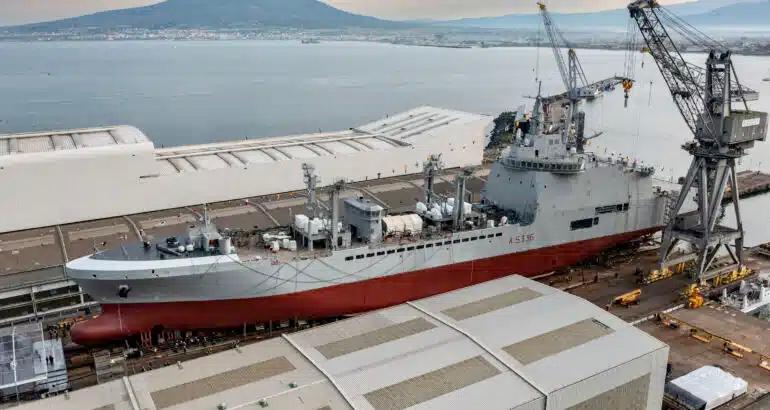Fincantieri Launches The Second Logistics Support Ship Atlante For The Italian Navy
Fincantieri shipbuilding company launched the second Vulcano-class logistics support ship (LSS) ‘Atlante’, built as part of the Italian Navy’s fleet renewal plan, during a ceremony at the Castellammare di Stabia shipyard in Naples. High-level military and company officials attended the ceremony, including Fincantieri President General Claudio Graziano, Italian Naval Forces Commander Admiral Enrico Credendino, Joint Armament Cooperation Organization (OCCAR) Director Joachim Sucker, and Naval Armaments Directorate – NAVARM Director Admiral Chief Inspector Giuseppe Abbamonte.
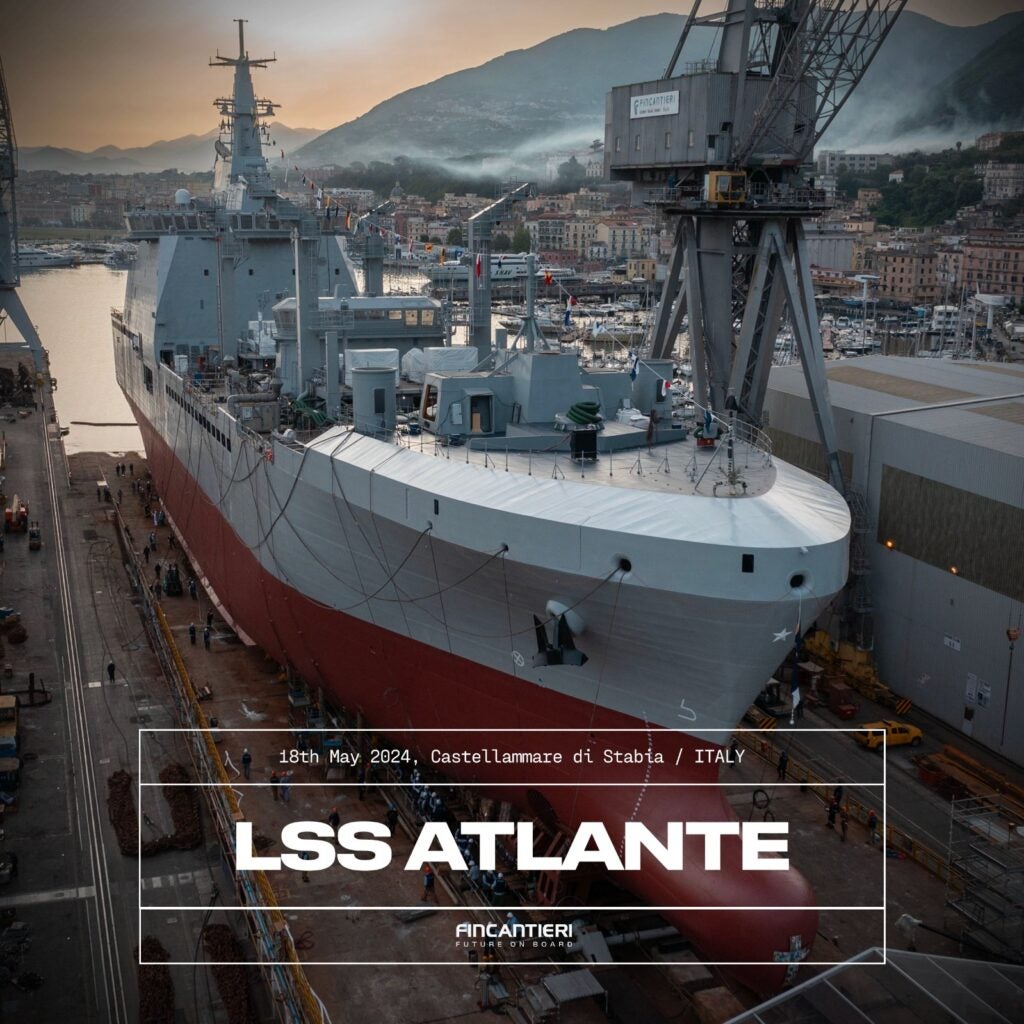
Speaking at the ceremony, Fincantieri CEO and General Manager Pierroberto Folgiero stated, “The Atlante represents a flagship of these ‘well-proven’ platforms, sought after internationally, and primarily signifies the history of Fincantieri and the strength of its workforce. The Castellammare shipyard, with its military and civil expertise, stands and will remain at the heart of our industrial plan, with the goal of its further implementation. The Navy’s defense spending means protecting borders, commerce, sea beds, deterrence, as well as offensive and defensive capabilities.”
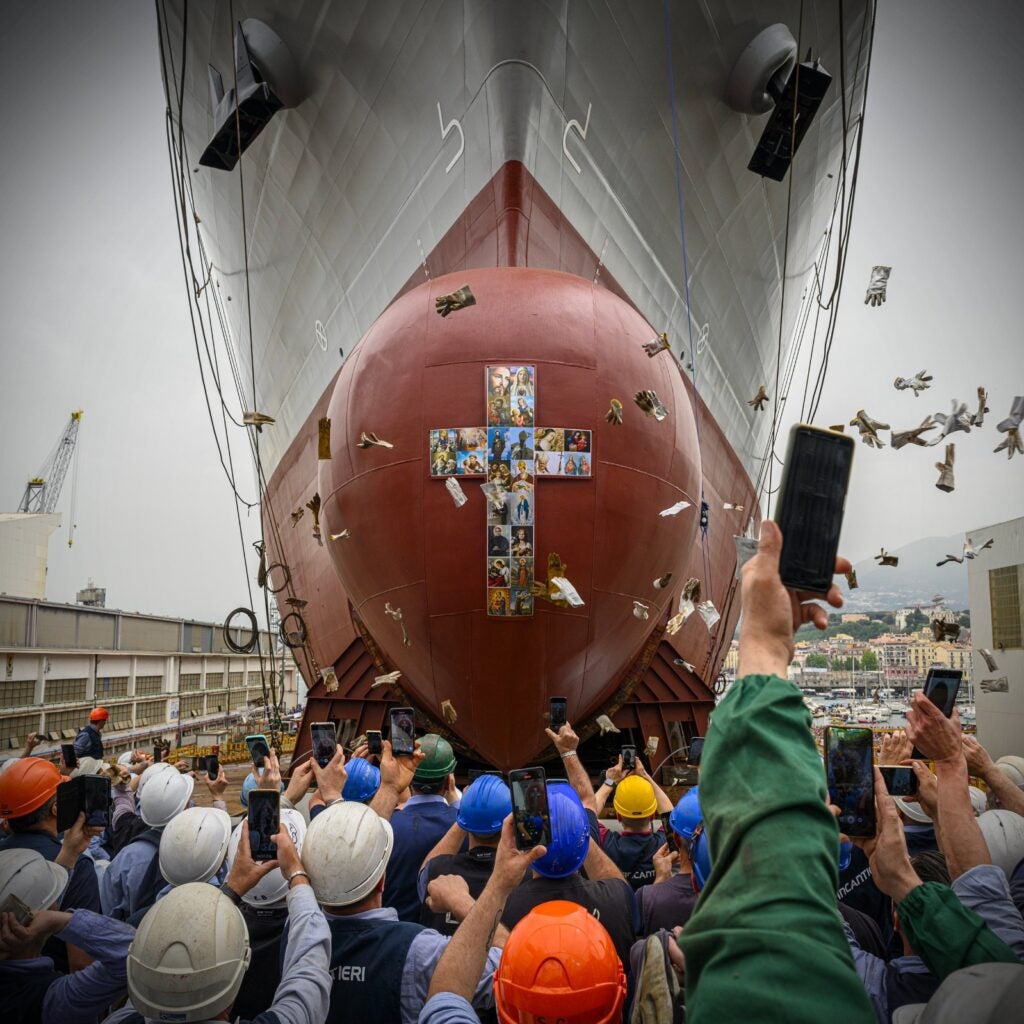
While Fincantieri President General Claudio Graziano added by saying, “The new units have operational capabilities in various maritime sectors, from defending vital interests to Euro-Atlantic spaces. They play a crucial role in contributing to international security, a topic of great relevance when considering the geopolitical landscape.”
The Vulcano project was launched in May 2015 to replace the Italian Navy’s Stromboli-class supply tankers, which have been in service since 1975. In July 2017, the company held a steel cutting ceremony at its shipyard in Castellammare di Stabia to officially begin construction on the lead ship ‘Vulcano’. The ship was launched in June 2018 at the Naval Integrated shipyard’s Muggiano (La Spezia) facility, with the stern built at the Riva Trigoso shipyard near Genoa and the bow built at Castellammare di Stabia in Naples. The logistics support ship, which completed the sensor and armament processes in more than two years and successfully completed sea trials, entered the service of the Italian Navy in 2021. It is anticipated that the second vessel in its class, “Atlante,” whose keel was laid in 2023 and whose construction began in 2022, will be delivered to the Italian Navy by 2025. The program also includes the option of building two additional Vulcano-class logistics support ships (LSS).
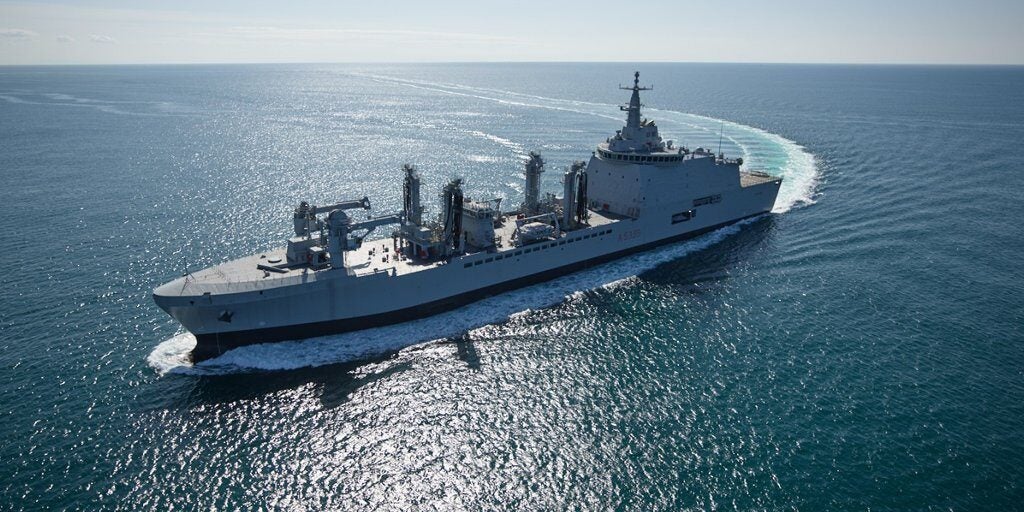
The “Vulcano” project also serves as the foundation for the FLOTLOG (“Flotte Logistique”) program, which includes the construction of four logistics support ships for the French Navy by a temporary consortium formed by Chantiers de l’Atlantique and Naval Group as part of the Italian-French LSS Program carried out by OCCAR (Organisation for Joint Armament Co-operation). Delivered to the French Navy on July 18, 2023, “Jacques Chevallier” is the first of the supply ships built as part of this program, which began in 2018 and is also known as Bâtiment ravitailleur de forces (BRF). The remaining three ships are scheduled to go into service in 2025, 2027, and 2030, respectively.
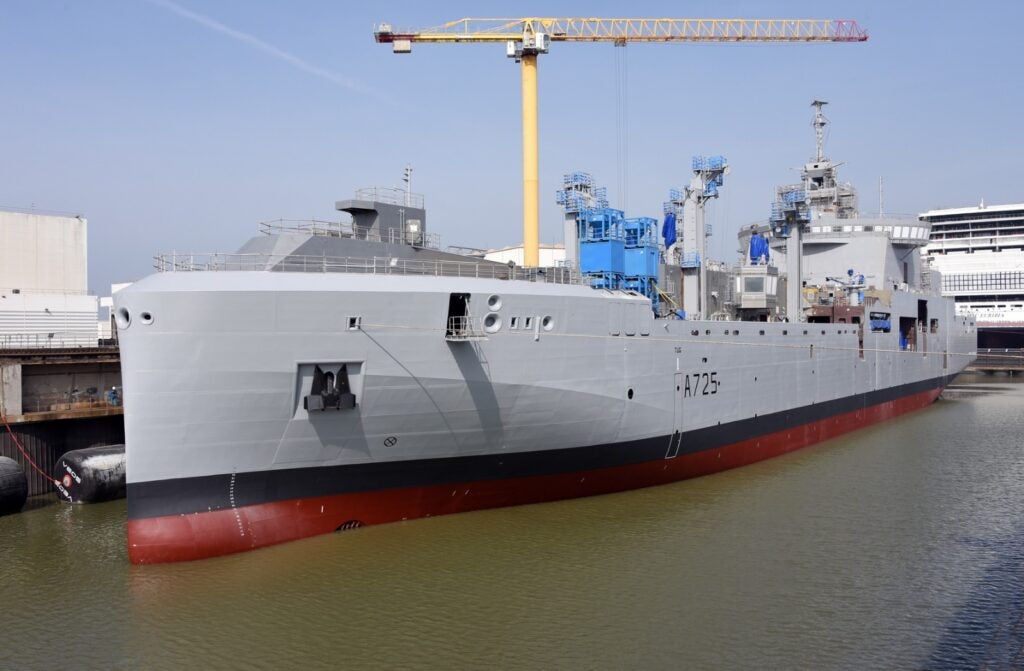
The Italian Navy’s Vulcano class LSSs have a length of 193 meters, a width of 24 meters and a depth of 16.3 meters. These ships, whose primary mission is to transport payloads such as fuel, ammunition, spare parts, and food to warships deployed as part of a Marine air group or naval task group, can carry up to 15,500 tons of cargo each. The LSS, which has a fully loaded displacement of 23,000 tons, can also be used to support joint maritime task forces deployed in humanitarian, disaster relief, and civil protection operations.
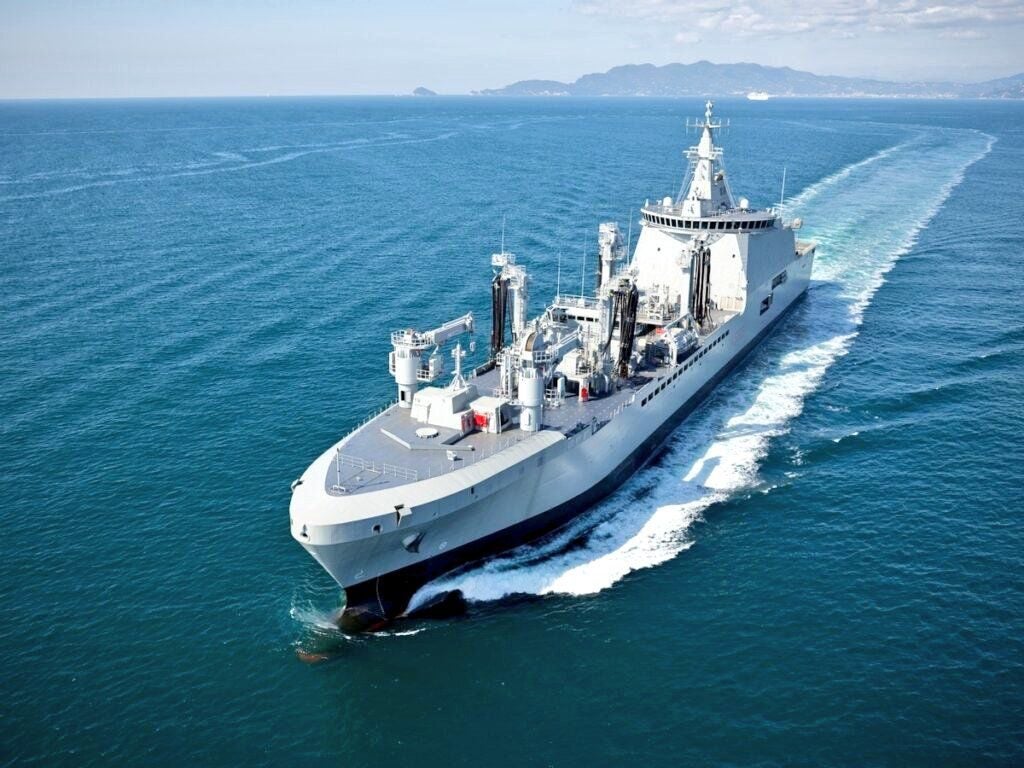
The LSSs are powered by a combined diesel-electric and diesel (CODLAD) propulsion system that includes two MAN Diesel and Turbo 20V32/44CR main engines with 12,000kW each. This allows it to cruise at a maximum speed of 20 km and travel up to 7,000 nautical miles at 16 km/h. The ships also have a flight deck at the stern for an NH90 or EH101, as well as a hangar capable of accommodating two helicopters of this type. These ships, which can perform uninterrupted offshore duty for 30 days, can accommodate 235 people, including 167 crew members and additional personnel. Furthermore, the ships, which include a fully equipped hospital with operating rooms, radiology and analysis rooms, and a dentist’s office, can accommodate up to 17 seriously injured patients.
The defense systems of Vulcano-class ships include tactical command and control capabilities, as well as communications and non-lethal deterrent systems. The ships also reportedly have more advanced defense systems, as well as supporting intelligence and electronic warfare equipment.

